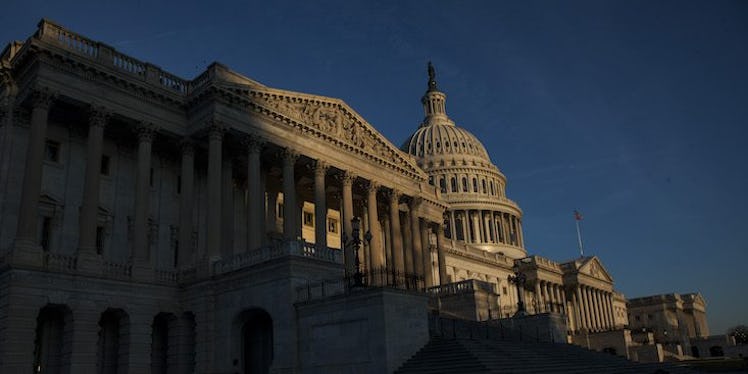
Congress Reaches Agreement To Punish Russia For Election Meddling
Congress has reached an agreement about legislation to sanction Russia as punishment for its interference in the 2016 presidential election, The New York Times reported on Saturday.
Legislators announced on July 22 that the House and Senate had reached a deal on the proposed legislation, which the House is expected to vote on Tuesday. The bill reportedly has bipartisan support across Congress.
The new bill also prevents the president from adjusting the sanctions without lawmakers' consent, despite the White House's arguments that President Trump needed to be able to ease or lift the sanctions for diplomatic flexibility.
The sanctions are intended to punish Russia for its interference in the 2016 presidential election.
The U.S. intelligence community is in agreement that Russia meddled in the election through cyberattacks and fake news. President Trump has long expressed skepticism of those conclusions, saying as recently as July 6 that “it was probably other people and/or countries… nobody really knows for sure.”
Trump is also friendly with Russian president Vladimir Putin, at one point suggesting that the United States and Russia partner on cybersecurity.
The sanctions would punish Russia for its election interference, as well as human rights abuses, military activity in Ukraine and Crimea, and cybersecurity attacks.
The bill is also paired with sanctions against Iran and North Korea, which could leave Trump torn if able to veto — though his administration does not want to lose control over sanctions against Russia, Trump has called for tougher sanctions against both Iran and North Korea.
However, Trump might not even have the chance to kill the sanctions.
The bill is an adjusted version of a sanctions bill that the Senate voted on in June, which passed with a strong majority of 98-2. With bipartisan support for the bill, there's a chance that it could pass both chambers of Congress with enough support to bypass a veto, meaning that Trump would effectively have no choice but to sign it, according to CNN.
The New York Times noted that two anonymous senior administration officials said that they "could not imagine" Trump not signing it in the current political climate, no matter how he felt about it. However, The Times then hedged their bets, noting that Trump "retains the capacity to surprise." He does at that.
Legislators are reportedly hoping to get the bill to Trump's desk before the August recess.